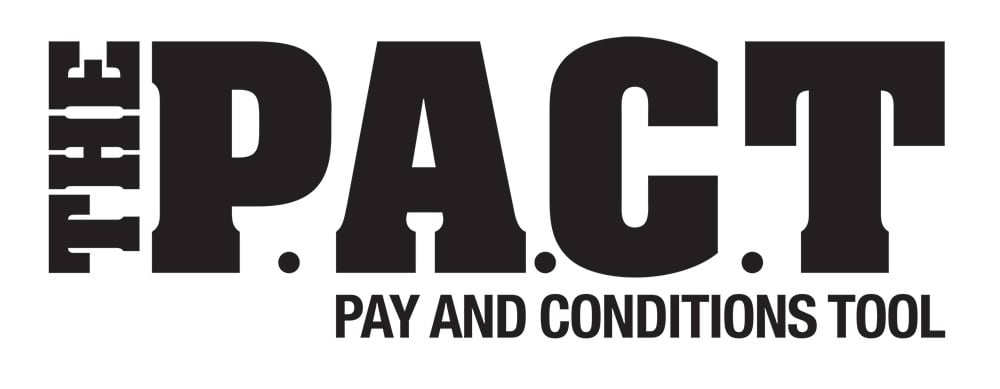Know your correct pay and conditions
The first thing you need to know is whether you are covered by an award or an enterprise agreement. You will only be covered by one of these at a time.
An award is a document that outlines minimum pay rates and conditions of employment, including entitlements such as pay, hours of work, rosters, breaks, allowances, penalty rates, overtime, and other conditions.
An enterprise agreement sets out minimum employment conditions and applies to one business or a group of businesses, and are sometimes called ‘EAs’ or ‘EBAs’.
Your training contract should say which award or enterprise agreement applies to you. Your employer can help you find your award or enterprise agreement.
Find awards and enterprise agreements online:
You have the right to be paid correctly for your work.
As an apprentice or trainee, you can only work full-time or part-time, you cannot work or be paid as a casual.
How to check

If you are under an award, you can find out your current minimum pay rates using the Fair Work Pay and Conditions Tool. Minimum pay rates may change over time, so always check the Pay and Conditions Tool for the most up to date information.
If you are under an enterprise agreement you can check this by reading your agreement.
Based on your award or enterprise agreement you may get a higher pay rate for working at particular times of the day or on certain days of the week. You may also get allowances, other entitlements, or reimbursements for fees and textbooks.
For more information you can visit these Fair Work pages:
- Minimum wages
- Find my award or Find an enterprise agreement
- Overtime pay and When overtime applies
- Allowances
- Reimbursement of TAFE fees and textbooks
- P.A.C.T Pay Calculator
- Pay guides
If you don’t think you are being paid correctly you can contact the Fair Work Ombudsman.
Many of an apprentice or trainee’s entitlements will be the same as other employees. These are the minimum entitlements under the National Employment Standards and include annual leave, sick leave, public holidays and breaks.
Awards and enterprise agreements can have specific entitlements or rules. The best way to check the entitlements that apply to you is through the Fair Work Find my award or Find an enterprise agreement tools.
You may be able to get extra payments (known as allowances) depending on your award or enterprise agreement.
Allowances are sometimes paid for:
- tools or equipment (if you provide your own)
- uniforms or safety gear
- travel or meal costs
- living away from home
Ask your employer or union or check your award or enterprise agreement to see what applies.
For more information on allowances, visit the Fair Work Ombudsman’s Allowances page.
You can also get financial support as an apprentice or trainee. Use the Incentives Explorer on the Australian Apprenticeships website to find out if you qualify for extra payments or assistance.
To be paid apprentice wages, you must have a formal training contract. That contract must be registered with the Victorian Registration and Qualifications Authority (VRQA).
Generally, apprentice and trainee pay starts lower and increases as you progress through your training. This is called pay progression.
Pay progression
There are two main ways your pay may go up:
- time-based: your pay increases after a set time (for example, 12 months)
- competency-based: your pay increases when you meet key skill or training requirements, even if it is sooner than the time-based method
Your award or enterprise agreement will say which method applies to your situation.
After you complete your training, your pay rate may change. To check, go to your. award or enterprise agreement
You may finish early if:
- you complete all required competencies in your training program, and
- your employer agrees that you can do the job
Keep your training plan updated to show your progress. Work with your training provider and employer to maintain it regularly. Ask your employer to sign off each skill as you demonstrate it on the job.
Talk to your employer first
Often, you can resolve issues directly with your boss, manager or payroll officer.
Other trusted services:
Fair Work Ombudsman
- information about apprentice rights and responsibilities at work – see the Fair Work Ombudsman’s Guide to starting an apprenticeship
- advice and tools to check your pay and conditions – see the Fair Work Ombudsman’s Apprentices and Trainees page
- assist with workplace disputes including underpayments
- contact the Fair Work Ombudsman
Fair Work Commission
- information about awards or enterprise agreements
- supports dispute resolution and agreement queries
- visit the Fair Work Commission website
National Code of Good Practice
- a guide for apprentices and employers entering a training contract
- explains rights, expectations and responsibilities.
Unions
- provide advice, support and representation in the workplace
- help you understand your pay and workplace conditions
- you can choose whether you want to join – this is your legal right
- find a relevant union at Australian Unions
Young Workers Centre
- free, confidential support for under-30s
- advice on pay, rights and safety at work
- visit the Young Workers website or call 1800 714 754
More support
For help with health, wellbeing or legal issues, visit our Get help and wellbeing support page.
Updated

